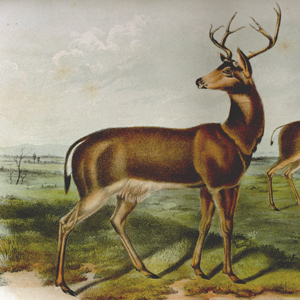

Lewis’s conviction that the “black tailed fallow deer of the coast” and the “common fallow deer” were two distinct species was sufficient to urge later investigators to try to clarify them.
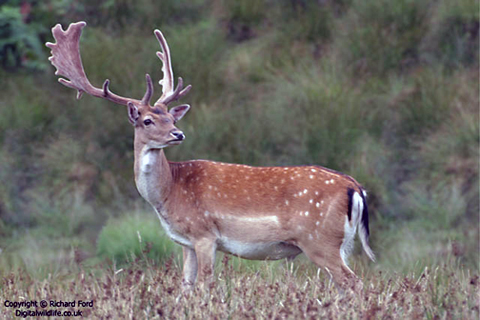

Lewis and Clark used the word fallow mainly in reference to the color of the Virginia whitetail. Few, probably, had ever seen a picture of a European fallow deer, and may have been unaware that this species’ distinctive antlers were not round like those of indigenous North American deer.
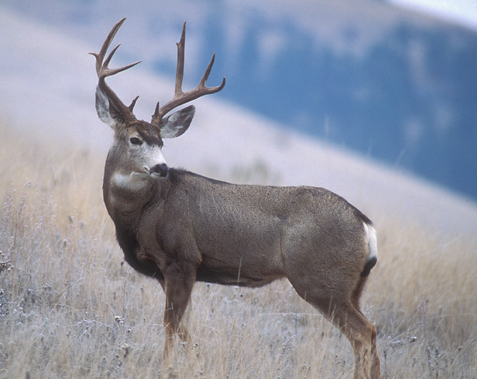

Drouillard spotted the first “Deer with black tales” on 5 September 1804, on the cliffs upstream from the mouth of the Niobrara River in northeast Nebraska. By 10 May 1805 Lewis had seen enough specimens to write an 800-word description of the new species.
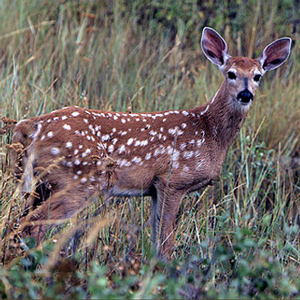

Lewis had no reason to write about the common or fallow deer of the East Coast, although in using it for the purpose of comparison, he gave quite a clear picture of it. John Godman’s 1828 description relied partly on Lewis and Clark’s journals.
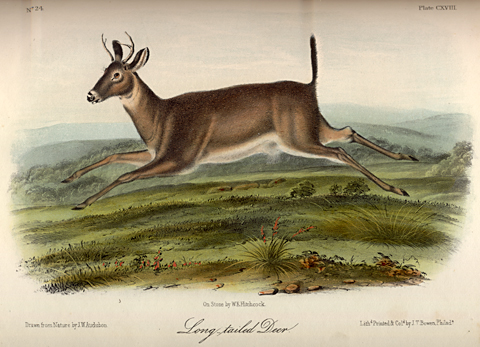

One of the most confusing terms in Lewis and Clark’s lexicon of quadrupeds was the adjective long-tailed—or longtailed. At the Three Forks on 29 July 1805, he compounded the ambiguity.
Experience the Lewis and Clark Trail
The Lewis and Clark Trail Experience—our sister site at lewisandclark.travel—connects the world to people and places on the Lewis and Clark Trail.
Discover More
- The Lewis and Clark Expedition: Day by Day by Gary E. Moulton (University of Nebraska Press, 2018). The story in prose, 14 May 1804–23 September 1806.
- The Lewis and Clark Journals: An American Epic of Discovery (abridged) by Gary E. Moulton (University of Nebraska Press, 2003). Selected journal excerpts, 14 May 1804–23 September 1806.
- The Lewis and Clark Journals. by Gary E. Moulton (University of Nebraska Press, 1983–2001). The complete story in 13 volumes.

